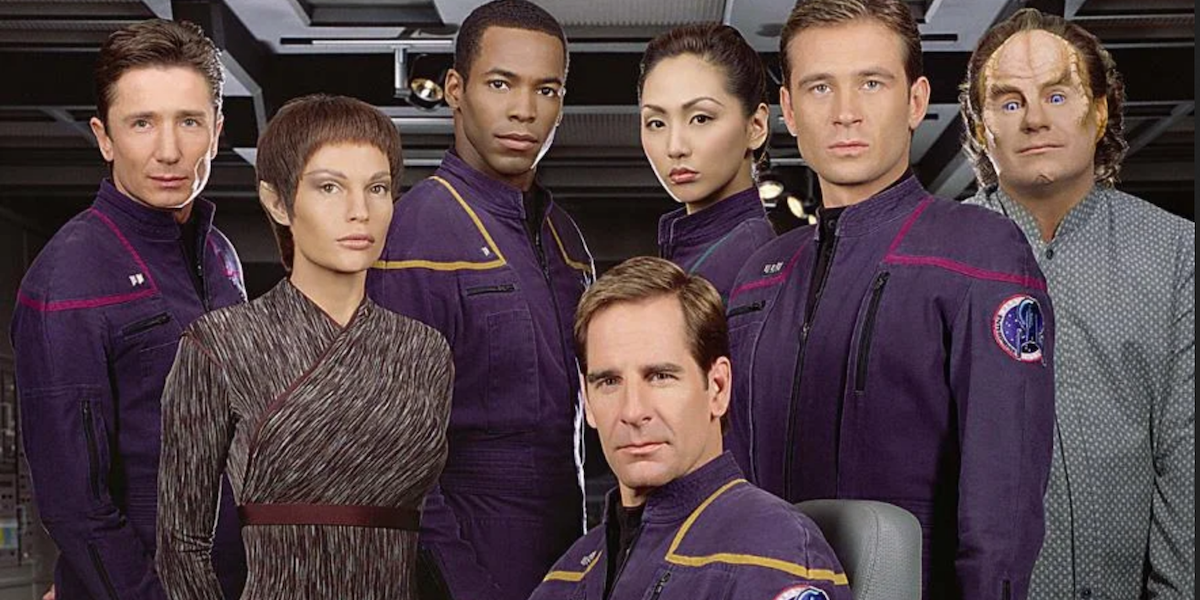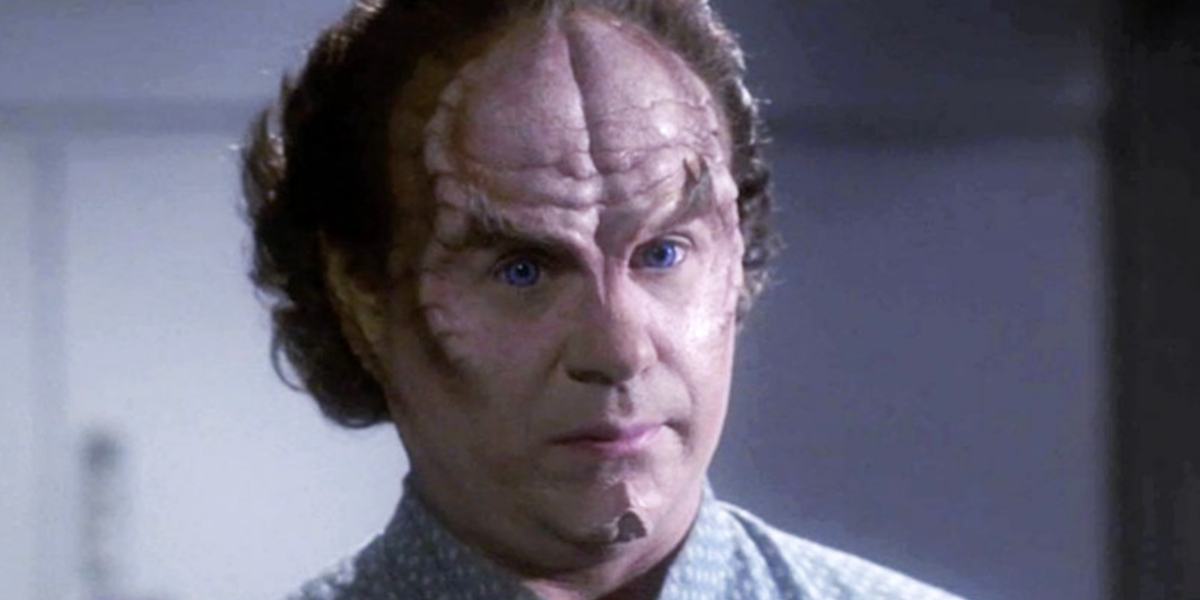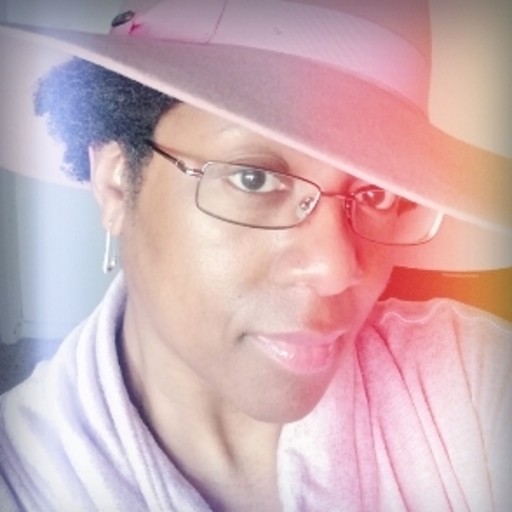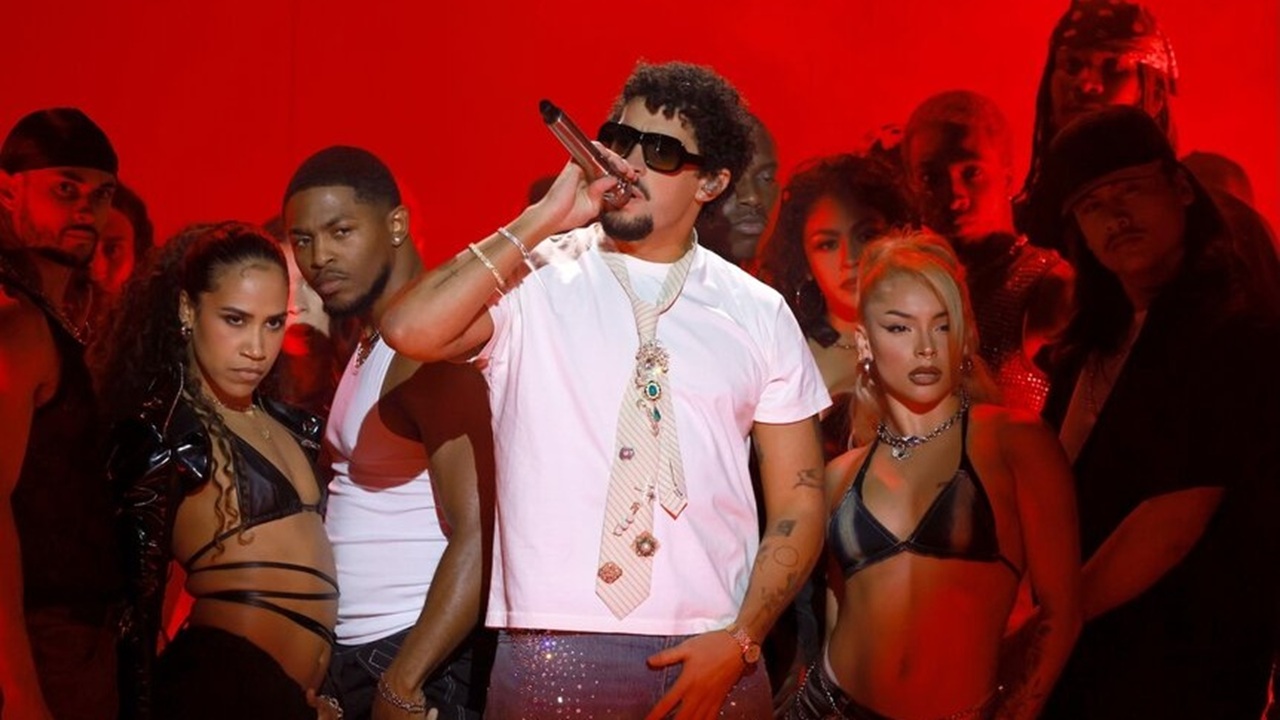Why One Star Trek: Enterprise Actor Thinks The Show Wasn't As Successful As Its Predecessors

Your Daily Blend of Entertainment News
You are now subscribed
Your newsletter sign-up was successful

Star Trek has been one of our most enduring franchises since The Original Series launched way back in 1966. While movies were the dominant force in the franchise for almost two full decades following that show's demise, 1987 brought Trekkies Star Trek: The Next Generation and a string of TV shows that would last for 18 years. Unfortunately, the last series of that run, Star Trek: Enterprise, did not see the success of the other shows fans had enjoyed for so long, but actor John Billingsley, who played Dr. Phlox on the series, thinks he knows why that is.
Enterprise came at the tail end of the run that included TNG, Star Trek: Deep Space Nine, and Star Trek: Voyager, with each of those shows seeing a lot of success and clocking in at seven seasons each. Enterprise, however, only saw four seasons and was cancelled by UPN, and even wrapped with one of the most hated finales in television history. So, why does John Billingsley believe the show didn’t get the same amount of love from fans as the shows which came before? He recently spoke in a Galaxy Con Live virtual panel (via TrekMovie) about Enterprise, and had this to say:
We came on after so many years of Star Trek, and in a number of those years, double-dipping. Deep Space Nine actually overlapped with Voyager, for instance. I think by the time we aired there was fatigue, understandable fatigue. The show did really at least need a year off. I always felt badly for [co-creators/executive producers] Rick [Berman] and Brannon [Braga] that they weren’t given that time.
John Billingsley may have a point. Voyager ended its run in May of 2001, while Enterprise started up in September of that same year. Sure, the franchise had been going strong since TNG, but many of the same creatives were involved behind the scenes for what ended up being a combined 21 seasons of television (excluding Enterprise). If my numbers are correct on the episode counts for the three shows which proceeded Enterprise, it would mean that the people behind those Trek classics had assembled over 500 hours of TV by the time they began working on Enterprise. And, honestly, that does sound like too much.
Billingsley went further in his interview, noting that he felt like the creators of Star Trek: Enterprise were on the right track with the characters and basic ideas for the series, but some of the overarching premises needed more time to be locked in, along with the tone of the series overall:
I think there was a little bit more work needed on what the tonal balance was between the darkness of, we are the first fucking ship and we don’t know what the fuck we are doing, and the nature of what Star Trek is supposed to be, the optimistic spirit… It is a hard tone to strike for what they were trying to do.
Of course, Enterprise was a prequel show, dedicated to following the crew of the first such named starship which was capable of traveling at warp five, and set a century before the events of The Original Series and just a few years before the formation of the Federation. Because of that, there were a lot of tense moments simply about the nature of what the crew was doing by going out to explore the galaxy and coming across several new alien races. But, the series needed to find a way to balance that tension with the hopeful nature of Star Trek, and John Billingsley doesn't quite think the right balance was set.
It should be noted, though, that John Billingsley doesn't think all of the blame is on the creators or writers for Enterprise. He also recalled a specific episode which got enough push back from the studio and UPN that the end result wasn't nearly as daring as it was originally planned:
And the studio itself also needed to kind of grapple with what they wanted to achieve. I remember there was an early episode where a crew member is transported and they come back. And in the first draft… it was pretty cool because this guy comes back and his head is where his ass is supposed to be and [flails around] ‘what the fuck!’ and we are afraid of the transporter. By the time it emerges and we are shooting it, the guy comes back from the transporter accident and he has got a little twig sticking out of his forehead. And that to me early on crystalized where I think the timidity of the network actually fucked us. To me there was another level of scariness that the show wanted to move towards, and I felt that the powers that be said, ‘But, but, but.’
The episode Billingsley seems to be referencing is "Strange New World," which was the fourth episode of Season 1. In it, the crew is studying an Earth-like planet they've found, but those who've stayed on the surface overnight begin to hallucinate and become paranoid. Apparently, when a crew member is beamed back to the ship during the emergency, he was supposed to return with his butt and face parts switched by the transporter, which was still experimental technology for the time period of the series. But, the higher ups made the writers settle for having some leaves and twigs stick out of the man's face.
Your Daily Blend of Entertainment News
I have to admit, I, like John Billingsley, feel a bit cheated by this choice. Oh, well. Nothing to be done about it now.
After hearing what Billingsley has to say about what might have gone wrong with Star Trek: Enterprise, it does seem like the show had a bit more of an uphill climb than I've been thinking it did for all of these years.
If you'd like to revisit Star Trek: Enterprise, you can stream the series on Netflix or CBS All Access. For more on what to watch right now, see what's new on Netflix this year, and look into your options for summer TV!

Covering The Witcher, Outlander, Virgin River, Sweet Magnolias and a slew of other streaming shows, Adrienne Jones is a Senior Content Producer at CinemaBlend, and started in the fall of 2015. In addition to writing and editing stories on a variety of different topics, she also spends her work days trying to find new ways to write about the many romantic entanglements that fictional characters find themselves in on TV shows. She graduated from Mizzou with a degree in Photojournalism.
